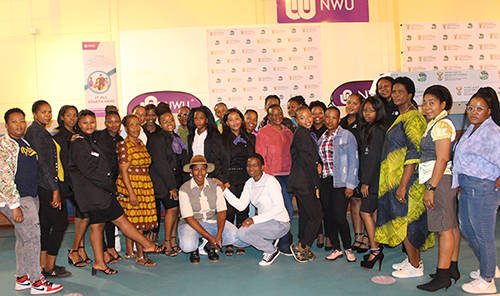Women around the globe continue to face challenges in accessing decent work opportunities and gender equality, while contending with gender-based violence and a myriad of other exclusionary practices.
This was the recurring theme during International Women’s Day commemorations on 8 March 2023, hosted by the North-West University (NWU) in partnership with the national Department of Women, Youth and Persons with Disabilities.
The hybrid event was streamed from the university’s Mahikeng Campus to a venue in Rustenburg and across the world under the theme “DigitAll – Innovation and technology for gender equality”.
Finland’s ‘famous five’
Delivering the keynote address, Anne Lamilla, Finnish ambassador to South Africa, shared her country’s experiences and how it came about that Finland is now led by “the famous five”, five women in a coalition government, of whom four are under the age of 40.
“We cannot do it alone. We need to share our experiences and learn from each other. Africa is a continent with young and bright individuals and that is why Finland is collaborating a lot with South Africa and African countries in general,” she said.
Although South Africa has achieved much, she noted a 2021 Oxfam report on gender equality, which stated that black women continue to be the face of poverty. “So, we really need women to be included in all decision-making at all levels,” she advised.
Prof Ntebo Moroke, deputy dean in the Faculty of Economic and Management Sciences, said women are also being excluded from participation in crucial executive management positions in the higher education sector.
Only a handful of women lead SA universities
There are 26 universities in South Africa, yet a mere five women serve in top positions such as vice-chancellorships, Prof Moroke said.
“We continue to see a picture that neither reflects the demographics of our nation nor the demographics of higher education. In terms of headcount, there are more women in academia than men and more women hold a master’s degree as the highest level of education.
“In terms of graduations to PhD, National Research Foundation (NRF) ratings and promotions, we see many more men than women in those areas. This is something that universities must really look at to ensure that we change that picture,” added Prof Moroke.
NWU principal and vice-chancellor, Prof Bismark Tyobeka, wished all women well for International Women's Day. In line with the day’s theme, he said the university has
done relatively well in terms of the achievement of gender equity among its staff and students.
“Sixty-four percent (64%) of our student population are women, while 56% of our staff are women. Our governance and management structures have processes in place to ensure that the composition of the various committees remains inclusive and diverse,” said Prof Tyobeka.
He admitted that although the university is proud of the progress thus far, it must continue to maintain and emphasise the need for inclusiveness and diversity across all areas within the NWU.
Dr Nkosazana Dlamini-Zuma, the newly appointed minister in the department of Women, Youth and Persons with Disabilities attended the event virtually.

The International Women’s Day event was attended by NWU staff and students, as well as employees from provincial and national government.
